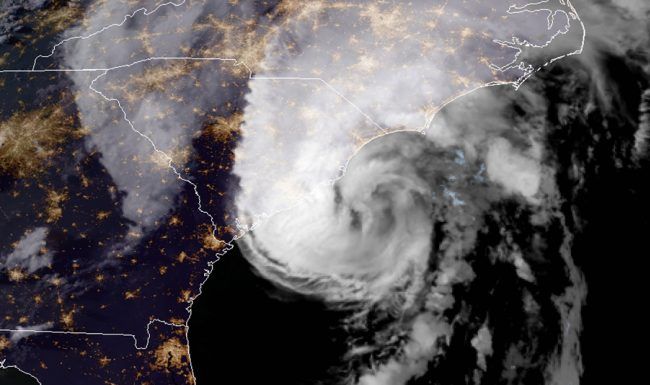Blog
Media Contact
Email: media@floodpanel.com

2020 Hurricane Season Poised to Break Records
PHOTO: A visible NOAA GOES-16 satellite image of Hurricane Isaias as it approached the U.S. East Coast at 7:46 p.m. ET, August 3, 2020. (NOAA)
At the beginning of June, the 2020 hurricane season was already looking busy, with at least nine major ‘named’ storms predicted by the National Oceanographic and Atmospheric Agency (NOAA). As of the middle of August, these nine named storms have already come and gone, and the tenth, Josephine, is forming on the horizon. With a full three and half months left in the season, we have already exceeded the predicted number of storms for the entire season. This is an indication that we may be in for a record-smashing year.
According to records kept by NOAA, most years will suffer an average of 10-12 named storms, of which an average of 6 become hurricanes. Of those 6 hurricanes, 2-3 will become major hurricanes- meaning Category 3 or higher. In preparation for the season, NOAA prepares and publishes the names for that year’s expected storms, so that weather professionals can be prepared and coordinated across the affected regions.
The names for the storms come from a list that is maintained by the World Meteorological Organization (WMO), and this list is strictly proscribed and inflexible. The names are assigned in order, alphabetically, with male and female names alternating. There are six lists of names, which are used in rotation, and after six years the cycle of names begins again. There are no names assigned to the letters Q,U,X,Y, and Z, so there are 21 names prepared at the start of each hurricane season. Very, very rarely is this list of 21 storm names inadequate to cover a year’s worth of named storms. One such year was 2005.
The year 2005 was a record-breaker in many ways. That year, a full 28 storms were strong enough to be assigned a name from the WMO, among them the infamous Hurricane Katrina. Storms like Katrina cause a rare alteration to the strict list of storm names, because these monster storms are so deadly and costly that using the name again would be painful to its victims, even six years later. In this rare case, the name of the notorious storm is permanently retired.
The other reason that the year 2005 was a record-breaker is that with 28 named storms, it used up all the names available for the year, and then some. In the event of this very infrequent circumstance, there is an ‘overflow list’ of other names derived from the Greek alphabet. When we hear of storms named Alpha or Beta, we know that this is not a normal year!
For this current year of 2020, with a global pandemic causing death and disruption across the planet, there are as many as 24 named storms considered likely. As the hurricane season extends from June 1 through November 30, we are currently only 1/3 of the way through the season, with ten storms already named! This means that we may have Hurricane Gamma on our hands by the end of the season. Any year in which the NOAA has to dip into the ‘Greek names’ is likely to be a bad year for anyone living or owning property in the hurricane zone- and we can only hope that another storm like Katrina will not appear in this already challenging and deadly year.

